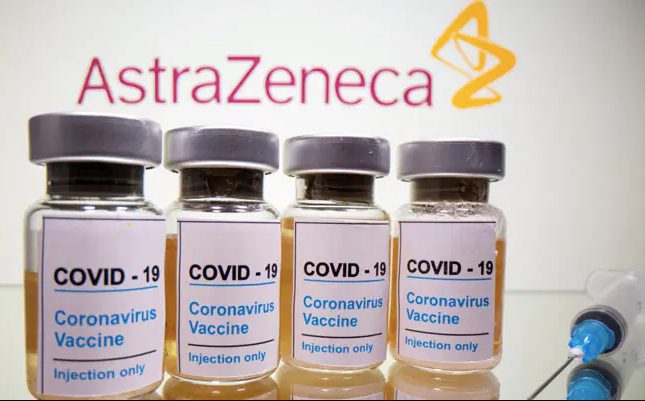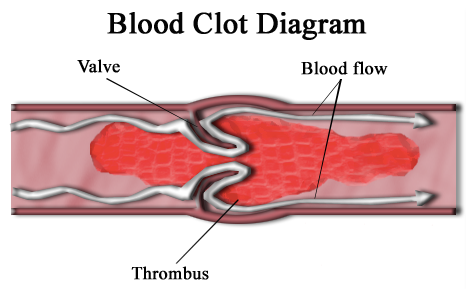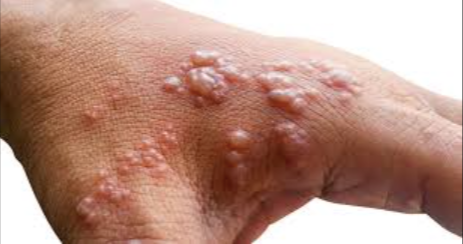Global pharmaceutical giant AstraZeneca has said that its AZD1222 vaccine against covid 19 which was made under licence in India as covisheild, could cause low platelet counts and formation of blood clots in infrequent cases.

What is Global pharmaceutical giant AstraZeneca and how is it related to covisheild?
It is a multinational pharmaceutical company, which is known for its research, development and production of medications across different therapeutic areas example oncology, cardiovascular, respiratory etc. It is related to covisheild by admitting that its covid 19 vaccine developed by researchers from Oxford University, can cause a rare side effect of blood clotting and low platelet count after immunisation.
AstraZeneca has accepted a link between the vaccine and Thrombosis with Thrombocytopenia syndrome (TSS), A medical condition characterised by abnormally low levels of platelets and the formation of blood clots.
What is thrombosis with Thrombocytopenia syndrome?
Thrombosis with thrombocytopenia syndrome is a rare but serious condition that can happen after receiving the covisheild vaccine, if I explain to you in simple language it is clotting of flood with a low level of platelets.
IS IT SERIOUS THAT SHOULD YOU WORRY ABOUT TAKING COVIDSHEILD VACCINE?
- Clotting of blood is like clumps that can form in your blood vessels. They can block blood flow which may be dangerous if it happens in your brain or lungs.
- Platelets are tiny cells in your blood that help in clotting if you have a deficiency of platelets it can make it difficult for your blood to clot properly.
Therefore when somebody has both thrombosis with thrombocytopenia syndrome it means that the patient has both blood clots and low platelet levels at the same time.

Were incidents of blood clots reported in India as well?
There are 26 potential cases or formation of clots in blood vessels reported since covisheild began to be administered ( source Indian government).
India started administering the vaccine on January 16, 2021, and considering the total number of doses that had been administered until then, the number of potential thromboembolic events worked out to 0.61 cases per million doses, or a percentage of 0.000061.
Q) What is Thrombosis with Thrombocytopenia syndrome (TTS), and how is it associated with the AstraZeneca covisheild vaccine? Discuss the implications of Thrombosis with Thrombocytopenia syndrome on vaccination strategies and propose potential solutions.(150 words 10 marks ).
The objective for the exam.
Concerning the Thrombosis with Thrombocytopenia Syndrome (TTS), consider the following statements:
1. It is characterised by abnormally low levels of platelets and the formation of blood clots.
2. Thrombosis can block the blood flow in both veins and arteries.
3. The symptoms associated with TTS include breathlessness and pain in the chest or limbs.
How many of the statements given above are correct?
(a) Only one
(b) Only two
(c) All three
(d) None
Topic 2
What is monkeypox, a smallpox-like disease from Africa that has been reported in the UK? why it is again and again in the news?
Health authorities in the United Kingdom have confirmed a case of a traveller from Nigeria to the UK who is suffering from Monkeypox.
What is the Monkeypox virus?

Monkeypox is a virus-causing viral infection that belongs to the same family as smallpox and cowpox viruses. It is a zoonotic disease that transfers from animals to humans and in this case from monkeys to humans. According to the WHO, cases occur close to tropical rainforests inhabited by animals that carry the virus. Monkeypox virus infection has been detected in squirrels, Gambian poached rats, dormice, and some species of monkeys.
Symptoms
The symptoms are similar to smallpox for example fever, rash, and swollen lymph nodes, it is not fatal except if you are an immunocompromised individuals.
Transmission?
The virus is transmitted through direct contact with infected animals or human contact or their body fluids, as well as through human-to-human contact. such as in the mouth or throat, respiratory droplets and contaminated objects, the WHO says.
Monkeypox disease: Symptoms and treatment:
According to the US Centers for Disease Control and Prevention (CDC), monkeypox starts with a fever, headache, muscle aches, backache, and exhaustion. It also causes the lymph nodes to swell (lymphadenopathy), which smallpox does not. The WHO mentions that it is important to not confuse monkeypox with chickenpox, measles, bacterial skin infections, scabies, syphilis and medication-associated allergies.
The incubation period that means the lasting (time from infection to symptoms) for monkeypox is usually 7-14 days but can range from 5-21 days. Usually, within a day to 3 days of the onset of fever, the patient develops a rash that begins on the face and spreads to other parts of the body. The skin eruption stage can last between 2 and 4 weeks, during which the lesions harden and become painful, fill up first with clear fluid and then pus, and then develop scabs or crusts.
According to the WHO, the proportion of patients who die has varied between 0 and 11% in documented cases and has been higher among young children.
There is no safe, proven treatment for monkeypox yet. The WHO recommends supportive treatment depending on the symptoms. Awareness is important for the prevention and control of the infection.
Occurrence of disease
The CDC’s monkeypox overview says the infection was first discovered in 1958 following two outbreaks of a pox-like disease in colonies of monkeys kept for research — which led to the name ‘monkeypox’.
The first human case was recorded in 1970 in the Democratic Republic of the Congo (DRC) during a period of intensified effort to eliminate smallpox.
According to the WHO, 15 countries on four continents have so far reported confirmed cases of monkeypox in humans.
Locally acquired cases have been confirmed in the DRC (which has the largest incidence of the infection in the world), Central African Republic, Republic of the Congo, Gabon, Cameroon, Nigeria, Côte d’Ivoire, Liberia, and Sierra Leone.
Imported cases have been found in South Sudan and Benin in Africa, and the United States, UK, Israel, and Singapore.
Objective question
Q1. Regarding Monkeypox, consider the following statements:
- It occurs primarily in tropical rainforest areas of central and west Africa.
- Monkeys are the natural hosts of the virus.
Which statement is/are correct?
1 only
2 only
Both
None
2. Abouta the Monkeypox virus, consider the following statements:
1. The monkeypox virus is an orthopox virus.
2. The symptoms of monkeypox are similar to smallpox.
3. The disease cannot be transmitted from infected animals to humans.
4. Recently, Congo declared the outbreak across the country a health emergency.
How many of the statements given above are correct?
(a) Only one
(b) Only two
(c) Only three
(d) All four
for more updates.
http://@MATEENAHAYAhttps://indianexpress.com/section/explained/
To read more update yourself: visit Facebook/ Instagram
| /https://mateenahaya.com/national-mineral-exploration-policy-2016-facts/ | |
| /https://mateenahaya.com/biosphere-reserve/ |
https://www.seruminstitute.com/product_covishield.php
- Name of the vaccines that were used worldwide to combat covid 19.
- https://www.who.int/emergencies/diseases/novel-coronavirus-2019/covid-19-vaccines
Great article to read about covishield
Good article to read about covishield